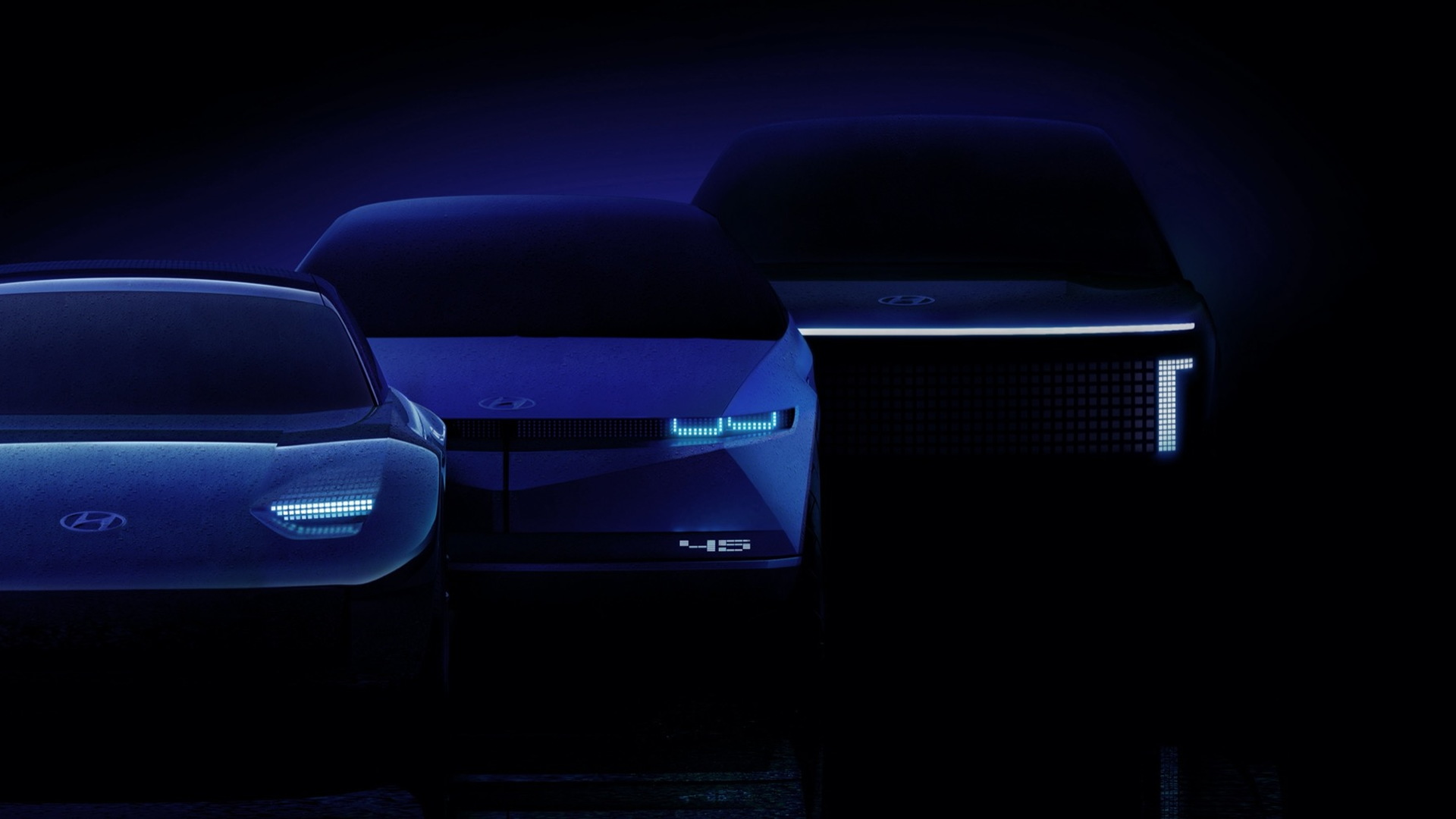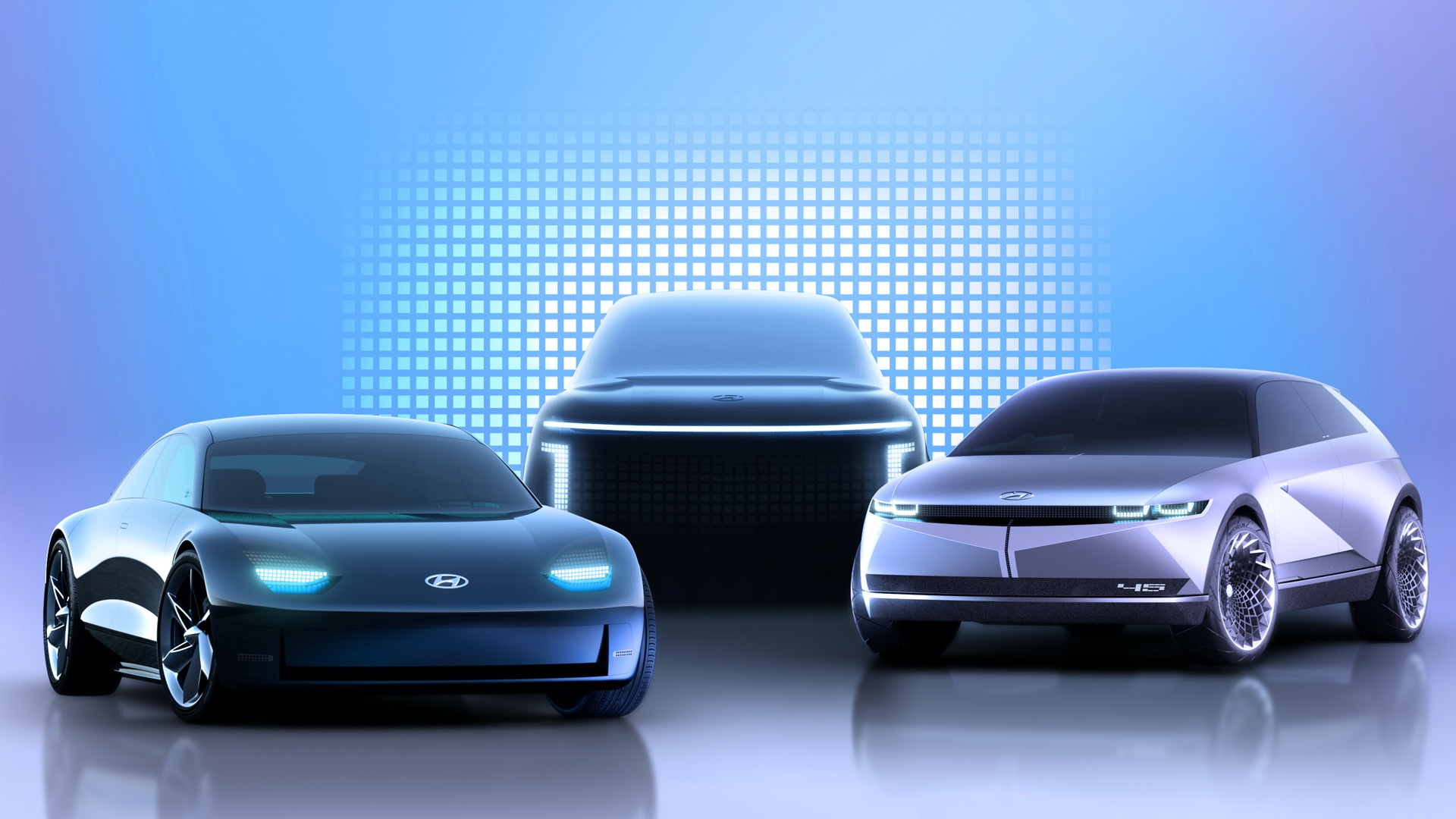Hyundai Monday morning in South Korea announced the formation of a new dedicated electric-vehicle brand, called Ioniq.
The brand follows a formula that Hyundai followed just a few years earlier, with Genesis: take a strong nameplate that applied to several things already, and refocus it. For Genesis, that focus was luxury; for Ioniq it’s “customer-centric EV experiences.”
In a press release issued with the announcement, Hyundai said that the creation of the brand “is in response to fast-growing market demand” for electric vehicles.

Hyundai Prophecy concept
It’s part of the automaker’s strategy to sell 1 million battery electric vehicles annually by 2025—so as to become the global leader of EVs. Of those sales, Hyundai aims to have 560,000 of those—including Ioniq—while Kia is vying for 500,000 annually by that time.
Hyundai says that the brand will aim to offer “customer centric EV experiences centered on connected lifestyle solutions.” That includes a lineup of vehicles built on its modular EV platform, called E-GMP.
For these, Hyundai promises something that could conceivably one-up Tesla: ultra-fast charging—expected to include fast charging at up to 350 kw, enabled by an 800-volt architecture. It also suggests a reimagined vehicle interior that’s a “smart living space” with highly adjustable seats, wireless connectivity, and a glovebox designed as drawers.

Hyundai 45 concept
Hyundai plans three new dedicated-EV models within the next four years under the brand, including the Ioniq 5, a crossover based on the 45 concept originally shown at the 2019 Frankfurt auto show, and the Ioniq 6, a sedan based on this year’s Prophecy concept. Those vehicles will arrive in 2021 and 2022, respectively—including in the U.S.—and a larger Ioniq 7 SUV will arrive in early 2024.
The brand doesn’t make a completely fresh start, of course. It starts with the name of Hyundai’s affordable Prius rival—a hybrid, without a charge port, in the vast majority of its sales.
Hyundai Motor America confirmed that current electric vehicles sold under the Hyundai name, like the Kona Electric, will continue unchanged, and that the Ioniq Hybrid, Ioniq Electric, and Ioniq Plug-In Hybrid will continue on. And perhaps in a nod to lessons learned when Hyundai tried to establish a distinct set of retail spaces for Genesis, Hyundai confirmed that Ioniq will continue using “existing Hyundai distribution channels.”

2022 Hyundai Ioniq 5 spy shots - Photo credit: S. Baldauf/SB-Medien
With the first of these vehicles—the Ioniq 5 crossover already spotted testing—due in the U.S. starting in fall 2021, that’s a lot more to ramp up than just production lines.



